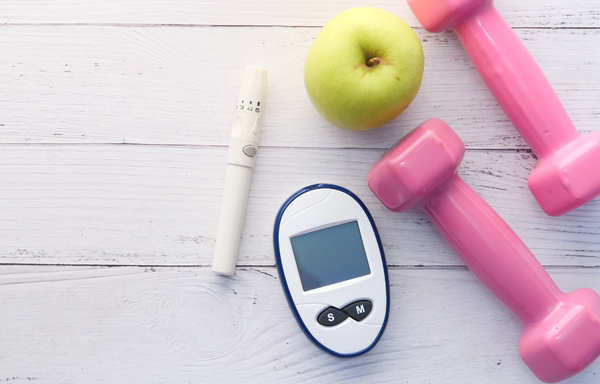

PCOS and Type 2 Diabetes: Prevention and Management
PCOS is more than just a reproductive condition—it is a metabolic disorder at its core. The majority of people with PCOS have insulin resistance, which means their cells do not respond properly to insulin. As a result, the body compensates by producing even more insulin, leading to elevated insulin levels over time.
Too much insulin in the bloodstream triggers a chain reaction:
- The ovaries produce more androgens (male hormones), contributing to acne, hair loss, and irregular cycles
- The body stores more fat, particularly around the abdomen
- Blood sugar regulation becomes impaired, increasing the risk of prediabetes and type 2 diabetes
Because of these metabolic disruptions, people with PCOS are significantly more likely to develop type 2 diabetes.
Insulin Resistance and the Path to Type 2 Diabetes
There are three key factors that link PCOS to type 2 diabetes:
-
Insulin resistance – Insulin resistance is one of the earliest warning signs of metabolic dysfunction. By the time blood sugar levels or A1c are elevated, insulin levels have already been high for years, if not decades.
-
Hyperinsulinemia – Persistently high insulin levels drive weight gain, particularly in the abdominal area, where excess fat is strongly linked to metabolic disease.
-
Chronic inflammation – PCOS is associated with low-grade inflammation, which worsens insulin resistance and makes it harder to lose weight. Over time, this contributes to the progression of type 2 diabetes.
When insulin resistance, high insulin levels, and inflammation combine, they create a cycle that makes it increasingly difficult to regulate blood sugar and metabolism. But the good news is that insulin resistance is reversible.
How to Reduce the Risk of Type 2 Diabetes
If you have PCOS, there are proven ways to lower your risk of developing type 2 diabetes and improve your overall health. Here are four key strategies to get started:
1. Eat to Keep Insulin Levels Low
The most effective way to reverse insulin resistance is by focusing on foods that do not spike insulin. Lowering insulin levels over time allows the body to become more insulin-sensitive, reducing the risk of diabetes and improving hormone balance.
- Good choices: non-starchy vegetables, lean proteins, healthy fats, nuts, seeds, and fruits
- Foods to avoid: starchy foods like rice, bread, pasta, and potatoes, as well as milk, whey protein, and added sugars
2. Move More
Exercise improves insulin sensitivity, allowing the body to use insulin more efficiently. Regular movement helps lower insulin levels, reduce inflammation, and support long-term metabolic health.
The key is to choose activities you enjoy and can stick with. Walking, strength training, yoga, and short bursts of high-intensity exercise can all help lower insulin levels.
3. Be Mindful of Medications and Supplements
Some medications may help lower insulin levels, but they are not a replacement for dietary changes. Medications like metformin or inositol supplements can support insulin sensitivity, but they work best when combined with a lifestyle that avoids insulin-spiking foods.
4. Monitor Insulin Levels
Many doctors focus on blood sugar levels when assessing diabetes risk, but insulin resistance starts long before blood sugar becomes a problem. Checking insulin levels regularly allows for early intervention and better tracking of progress.
With Lilli Metabolic Testing Kits, you can measure fasting insulin and other metabolic risk markers to get a clearer picture of your metabolic health. Regular monitoring helps track improvements and provides motivation to stay on course.
Taking Control of Your Health
Understanding the connection between PCOS and type 2 diabetes gives you the power to take control of your health. By focusing on insulin resistance, making informed lifestyle choices, and tracking progress, you can reduce your risk of developing diabetes and improve your overall well-being.






















